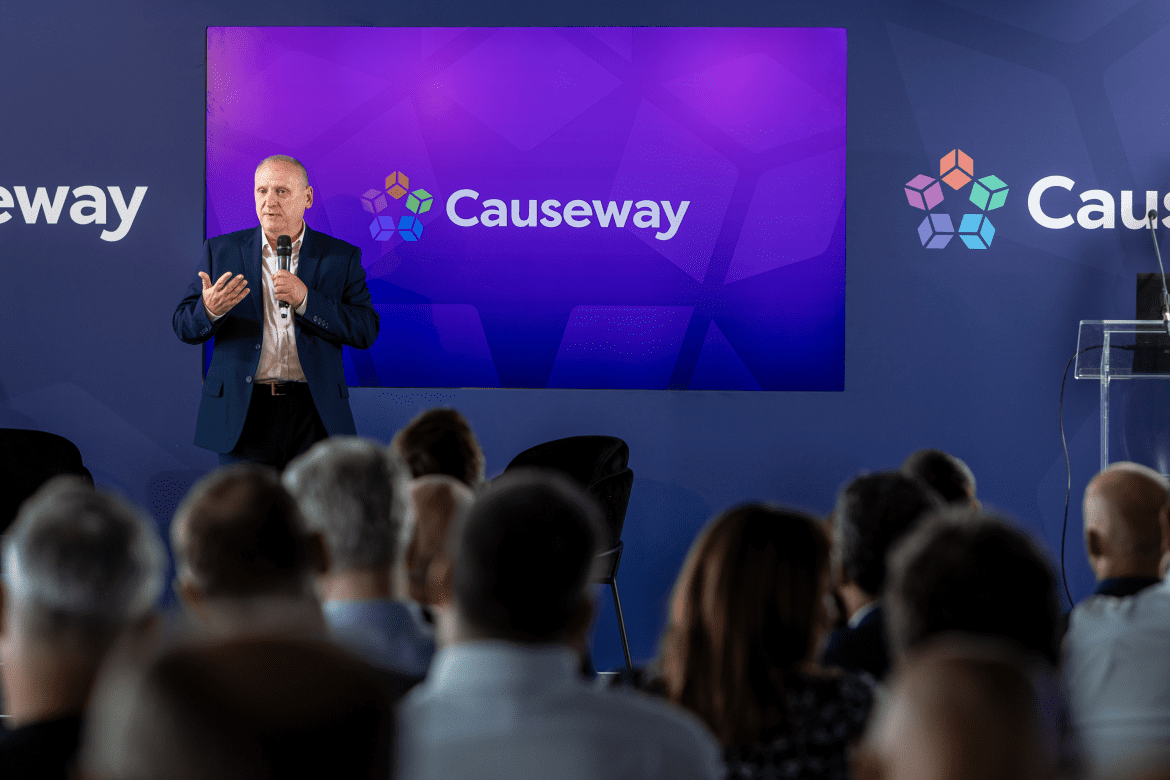This article was produced in association with Utility Week.
Digital passports holding information about contractor competencies, experience and training could be pivotal in addressing some of the water industry’s widespread skills gaps.
Construction and technical skills are in high demand.
The figures are stark. An extra 251,500 construction workers will be needed by 2028 to meet the expected demands of infrastructure projects, according to the latest Construction Skills Network report. That need is coming from a range of industries, not just utilities. In the water sector, where a near doubling of investment in infrastructure will take place in AMP8 (water companies are now projecting a spend of about £100 billion), it’s by no means certain the workforce will be available to execute lots of giant new projects.
The challenge could be reduced if organisations collaborate to make better use of the wider contractor workforce and existing skills in the supply chain. With so many projects going on, Jack Boon, workforce solution lead at Causeway Technologies, says that gaps in skills are not an issue that can be treated in isolation. Contractors work across multiple sectors and clients, all of which are feeling the skills squeeze.
“This isn’t just about AMP8, it’s also about new housing targets. The growth of the workforce in other sectors and the shift toward green energy infrastructure create pressure on everybody.
“The question is, how do we manage this growing workforce, how do we keep people safe, and how do we efficiently deliver?”
Phil Cull, southern region director, Barhale, who has worked on many complex infrastructure projects including the Thames Tideway tunnel and HS2, says industry needs to innovate to secure skills for these competing demands. “We can’t just magic people out of thin air, so we need to make sure everyone is as effective and efficient and as smartly utilised as they can be.”
Making the most of your supply chain: The skills passport
Collaborating across an entire industry, or even a single supply chain, to share or maximise skills may seem daunting.
Companies employ large numbers of contractors, often spread out across the country. Gareth Mullen, head of health, safety and wellbeing, Thames Water, points out that at a given time, Thames will be employing a contractor workforce of 10,000 people in addition to its own staff, spread across a wide geographical area.
That’s where technology can help. Causeway Technologies has created a solution that not only facilitates collaboration on skills but also offers much wider efficiency and productivity-boosting capabilities.
CausewayOne Skills Passport is a digital passport that keeps track of the wider construction and engineering workforce’s skills, competencies, experience and training. Companies using the system can quickly determine whether contractors have the skills and training required for a job and, crucially, that they meet health and safety standards on site.
This has an impact on onboarding time and training requirements, boosting efficiency and potentially cutting costs. This oversight of workers and their skills also enables the identification of workers who, with a little training, could be upskilled to fill upcoming challenges or shortages in the workforce.
One company that’s already a fan is Thames, which has been working with Causeway Technologies for a number of years on various versions of the technology, from a physical card with a chip containing crucial info about the contractor to today’s digital passport.
Mullen says: “CausewayOne Skills Passport enables us to onboard people quickly, avoiding having to retrain. We can see people have the right qualifications for the task they are expected to do. This gives reassurance to project and site managers that there is minimal risk of injury.”
Indeed, one of the huge benefits of CausewayOne Skills Passport has been a reduction in injuries – Thames now enjoys an industry-leading sub 0.13% lost time injury frequency rate, points out Mullen.
Contractors are also able to use digital skills passports to make use of the talents of workers from several sectors. Ian Nixon, SHE director at Costain, which works with water companies but also roads, rail, aviation and nuclear, says: “We’re not looking for people solely from the water sector, but where we can get transferable skills.
“Our transportation sectors are seeing a bit of a dip, which aligns well with the increase within water [in AMP8], so we are looking at where we can get transfers from other contracts.”
For example, Nixon says, workers based outside Newcastle on the National Highways regional development programme are well-placed to take on jobs at Northumbrian Water, another Costain client. Engineers with experience of tunnelling for HS2 and Crossrail can switch into water too, he adds.
CausewayOne Skills Passport could be just the tool to not only help swell the workforce in certain sectors but also make better use of skills that are already available. Boon concludes: “People can flow from site to site and project to project; we take down some of those barriers.
“And with improved efficiency comes less need to attract new people.”
To hear more from Thames Water, Costain and Barhale about how digital skills passports are helping create a workforce fit for AMP8, watch our webinar with Causeway Technologies on demand now.



